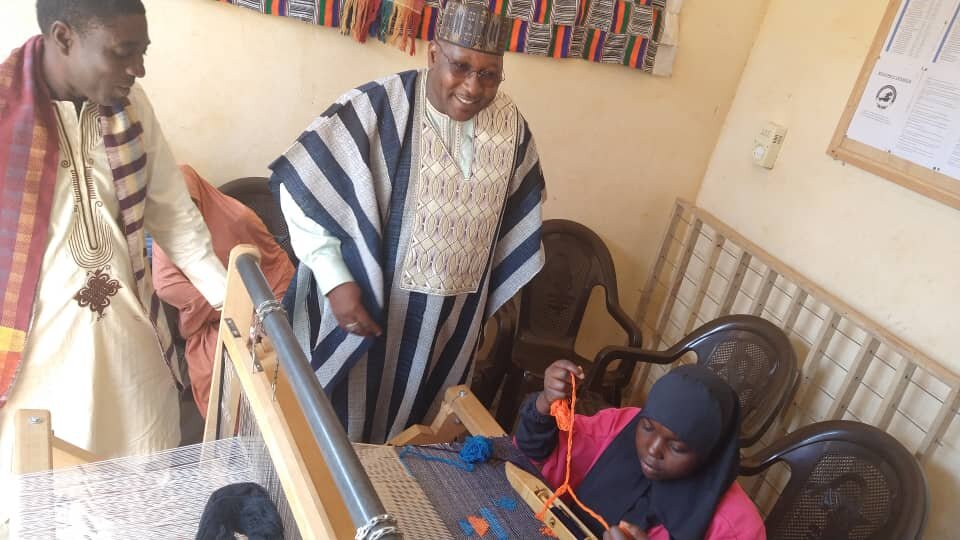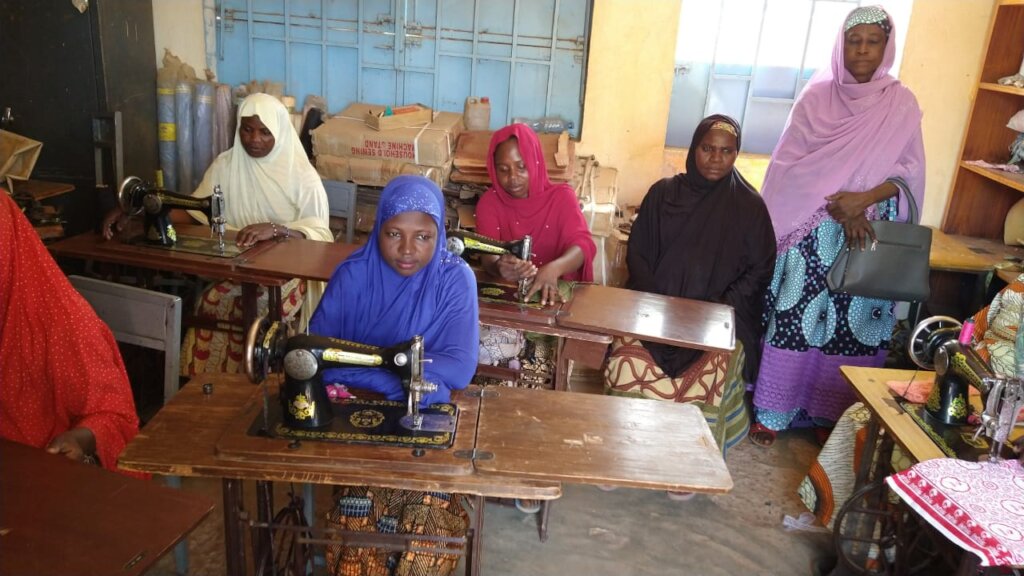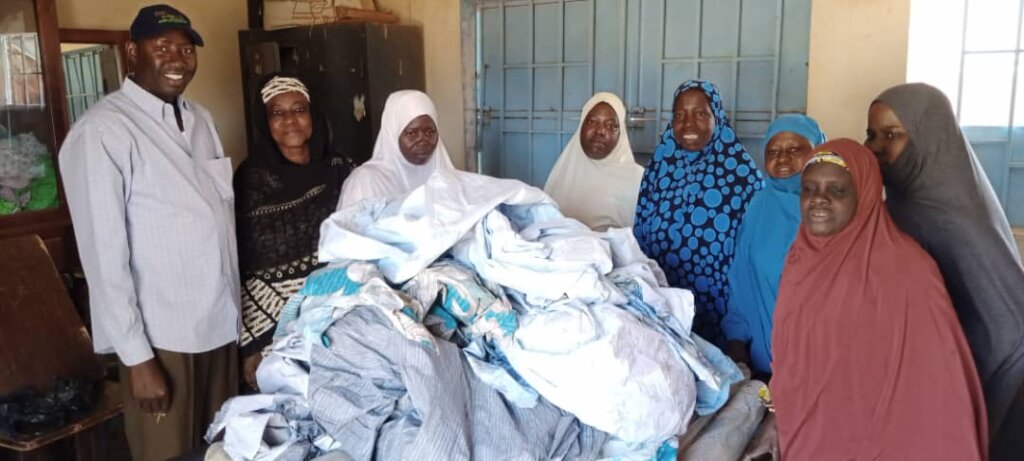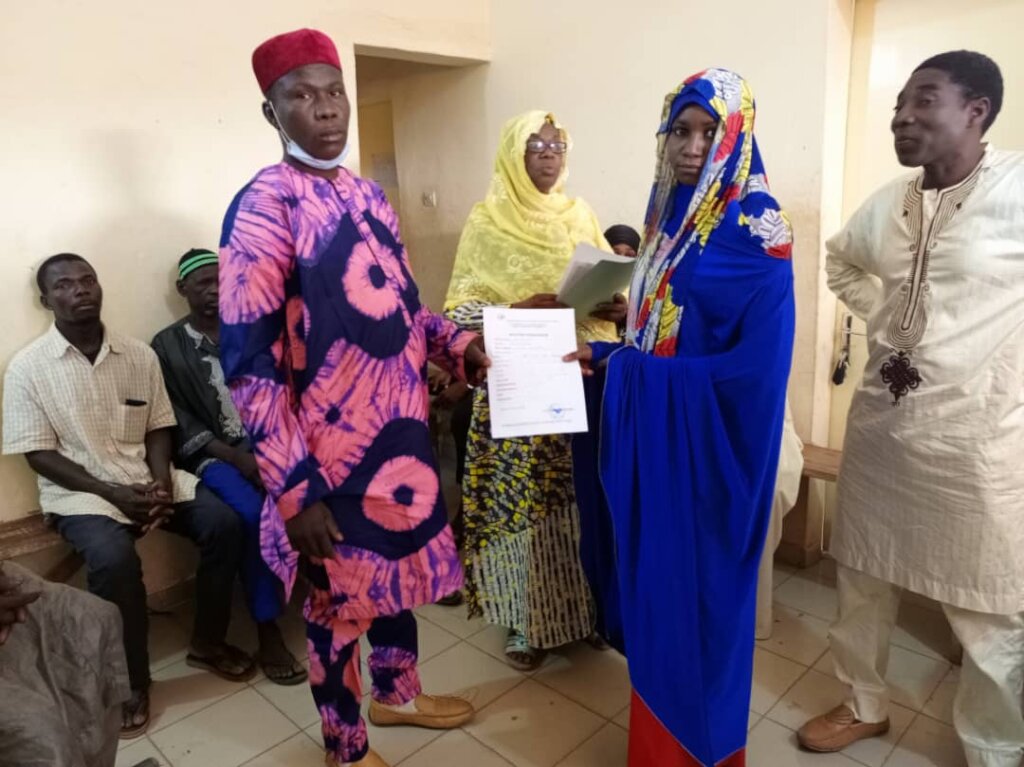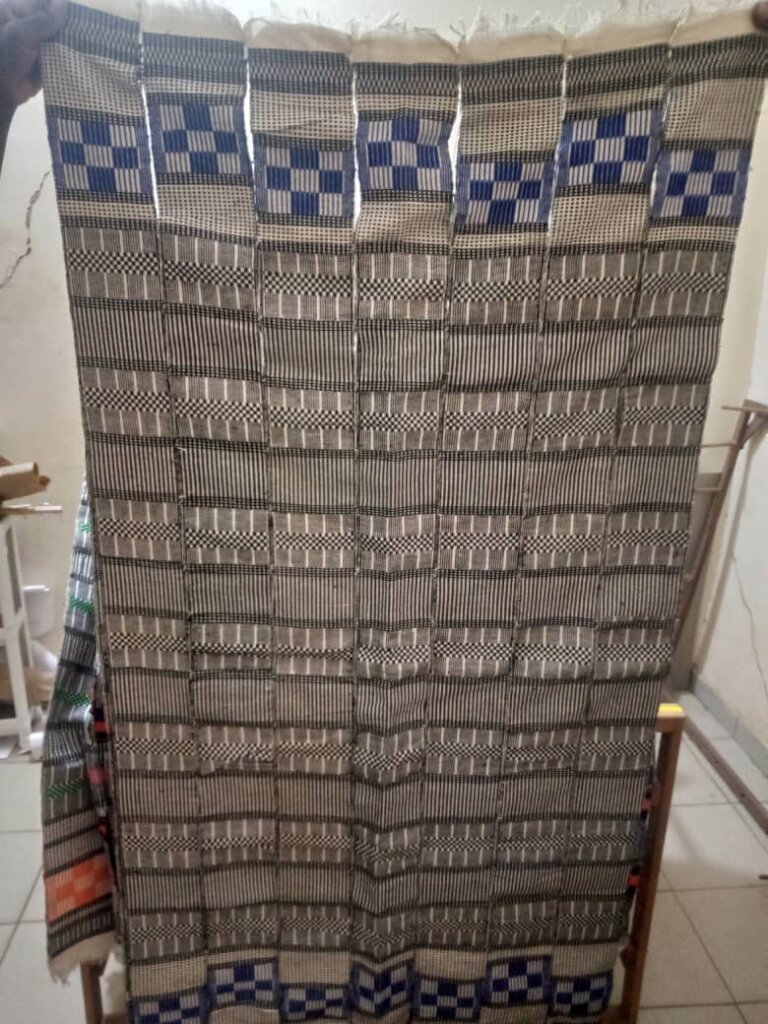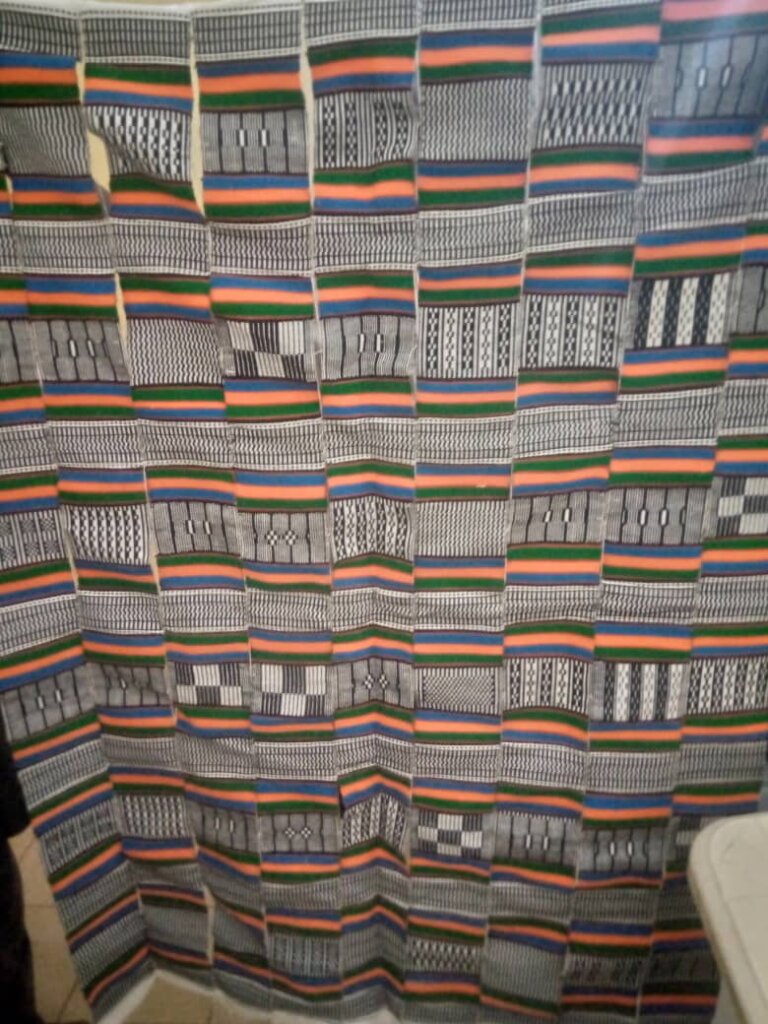By Soumana Saley | President
At the time we wrote our last quarterly report, DIMA was in the middle of a two-week workshop being held for 6 weavers by Genevieve Hill-Thomas. Three of the weavers were from the village of Kirubbe Keyna and during the workshop, we learned that they were masters of the craft. Their village had a history of weaving going back hundreds of years, but unfortunately, because of a lack of customers near them, no one in the village was weaving when DIMA first contacted the weavers.
Because the harvest in their village was finished for the year, the 3 weavers were planning to stay in Niamey to earn some money. DIMA hired them to work with its weaving students in the mornings and to weave in DIMA’s weaving studio when class was not in session. They quickly combined what they had learned from Genevieve with their knowledge of traditional Nigerien weaving and began weaving cloth for clothing on DIMA’s floor looms. Within a month after the workshop, they were getting orders for cloth for boubous ( West African men’s robes). By the end of February, they had also made four wedding blankets on DIMA’s strip looms.
DIMA has started marketing the handweaving in Niamey to build a market for the weavers.
Two of DIMA’s advanced weaving students participated in the workshop and learned to make rag rugs on a floor loom using scraps from the tailoring studio. We are also looking into selling these as well.
We received a donation in January that will allow us to purchase another floor loom. Eventually we need to find a way to make inexpensive floor looms available to the weavers that we train. We have started to research various designs that could be made by carpenters in Niger.
In January we equipped a tailoring classroom at the Centre National de Reference des Fisticules Obstetricales (CNRFO) and began training 30 patients at the clinic. Niger has one of the highest rates of obstetric fistula in the world. Obstetric fistula is one of the most serious childbirth injuries. Causes include early marriage age, malnutrition, and lack of prenatal care. Symptoms often lead to social ostracism of the patient. Part of the healing process is reintegration into the community through jobs skills training. DIMA will give 9 months of training to patients at the clinic. And, thanks to a donation from the Jane Huser Maxwell fund that was facilitated by Friends of Niger, DIMA will be able to give each of the tailoring students at the clinic a sewing machine to take with her when she returns to her village, so she will be able to earn a living.
Finally, in March students at our main Niamey center were tested and received their evaluations in late March just before taking a week off for a spring break. We are proud of their progress.
We are grateful for you support that makes this work possible. Have a great Spring!
Project reports on GlobalGiving are posted directly to globalgiving.org by Project Leaders as they are completed, generally every 3-4 months. To protect the integrity of these documents, GlobalGiving does not alter them; therefore you may find some language or formatting issues.
If you donate to this project or have donated to this project, you can receive an email when this project posts a report. You can also subscribe for reports without donating.
